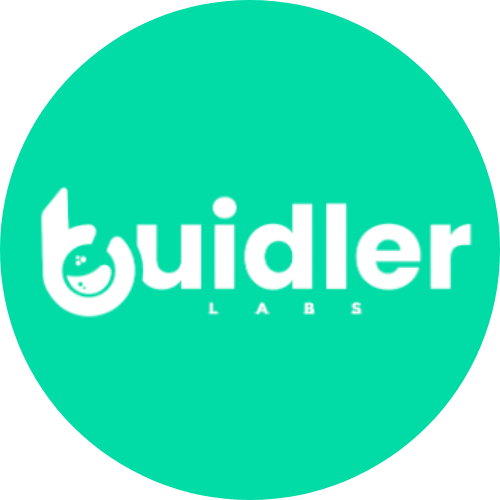
OKX
OKX, previously, Okcoin, is a prominent global cryptocurrency exchange and Web3 technology company headquartered in Seychelles. It serves over 60 million users worldwide and is known for its extensive range of digital assets.
The OKX platform supports trading for over 350 cryptocurrencies with numerous trading pairs and offers a comprehensive suite of services catering including spot, margin, and advanced derivatives trading such as futures with up to 125X leverage, perpetual swaps, and options.
Beyond its centralized exchange, OKX has significantly expanded into the Web3 space with its versatile OKX Wallet, a multi-chain self-custody wallet with support for decentralized applications (DApps), non-fungible tokens (NFTs), and a decentralized exchange (DEX) aggregator.
OKX also provides a growth platform for cryptocurrency holdings through its "OKX Earn" program which offers staking and savings products alongside automated trading via its artificial intelligence-powered automated trading bots.
It has its own native utility token, OKB, which provides users with trading fee discounts and access to exclusive platform features. Additionally, OKX has developed its own Layer 2 network, X Layer (formerly OKC Chain), a ZK-powered chain designed to enhance scalability and interoperability within its ecosystem, using OKB as the native gas token.
Project Information
Related Projects

Bountyblok is a versatile gamification platform that provides businesses with a suite of tools to drive user engagement, loyalty, and specific marketing outcomes. Operating as a Software-as-a-Service (SaaS) solution, Bountyblok enables companies to easily integrate gaming mechanics into their existing websites, applications, and communities. The platform allows for the creation of interactive campaigns such as challenges, tasks, leaderboards, and promotional contests, which incentivize user participation and foster a sense of competition and achievement.
While a powerful tool for traditional Web2 engagement, Bountyblok also serves as a bridge to Web3 by offering optional blockchain integration. The platform is chain-agnostic but has a notable integration with the Hedera network. This allows businesses using Bountyblok to reward their users with digital assets in addition to standard points or badges. For example, a user completing a series of challenges could be awarded a commemorative NFT or branded loyalty tokens minted directly on the Hedera network.

SKUx is a fintech company developing a payments solutions platform for the retail and consumer packaged goods (CPG) industries. Its mission is to eliminate the fraud and inefficiency that plagues the traditional promotional offer industry by creating a secure, transparent, and real-time system for offer delivery, redemption, and settlement.
The core of SKUx's service is its Smart Incentives platform, which transforms traditional coupons and rebates into serialized, payment-based offers. A key product is SKUPay, a patented technology that enables item-level payments, allowing brands to deliver value directly to consumers for specific products at the point of sale. The platform is designed to be seamless for consumers and requires no special integration for retailers, while providing brands with transparency and proof of ROI.
SKUx uses the Hedera Consensus Service (HCS) to create an immutable and auditable record of all offer-related transactions, from issuance to redemption. This provides a "single source of truth" for all parties in the ecosystem.

Music Battles is a "play-to-earn" social music gaming platform that combines the excitement of a live music competition with interactive mobile gaming. The company's mission is to revolutionize the music industry by creating a new ecosystem where artists, fans, and brands can connect and share value in a transparent and engaging way.
The core of the Music Battles experience is its mobile app, which allows users to vote for their favorite artists, participate in "Song Battles," and earn rewards for their engagement. The platform also features "SongSponsors," a proprietary, patent-pending system for programmatic royalty distribution that aims to create a more equitable model for artists. A central element of the ecosystem is its marketplace, where users can buy, sell, and trade digital collectibles, including song NFTs, and use the platform's native utility token for in-game transactions.
Music Battles is built on the Hedera network, leveraging its enterprise-grade performance to power its real-time gaming and transaction-based features. The Hedera Token Service (HTS) is used to mint all NFTs and the platform's native utility token, ensuring fast, low-cost, and secure transactions.

Buidler Labs is a software development and consulting company that specializes in building solutions on the Hedera network. It creates tools and infrastructure for developers to build and deploy decentralized applications (dApps) on Hedera, with a focus on enhancing the user experience and driving adoption of the ecosystem.
The firm's products include open-source libraries, hashgraph-react-wallets, and lightweight library that simplifies the process of connecting dApps to various Hedera-supported wallets such as Hashpack and Kabila. It also offers the Hedera Strato JS SDK, which provides a comprehensive toolkit for JavaScript developers. In addition to these developer-focused tools, Buidler Labs provides consulting services to help businesses design, build, and launch their own Hedera-based applications.
Buidler Labs’ work is aimed at lowering the barrier to entry for building on Hedera, particularly for developers who may be more familiar with Ethereum-based tools. Buidler Labs is a key player in expanding the developer base and the overall capabilities of the Hedera network.
